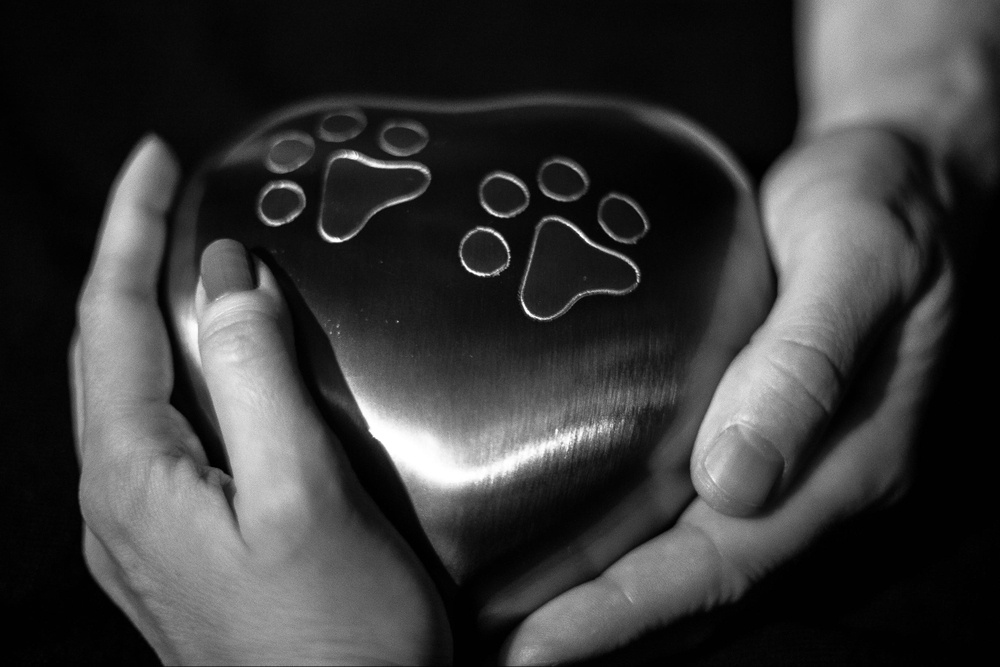The Pain of Pet Loss: Some Thoughts on Grieving

Losing a pet can be one of the most heart-wrenching experiences we face. For many of us, our pets are not just animals. They are beloved members of our family. When a beloved pet dies, the feelings of grief can be extremely overwhelming, leaving us feeling lost and empty inside.
 I didn’t grow up with dogs, so I didn’t understand this concept and how much I could really love an animal. I mean, I had a hamster and then a turtle (named “Shelly”) but didn’t really feel a strong bond with any of them. Then as an adult, I got my first dog, Annie. Then I finally understood! I would find myself just looking at her in amazement and joy. I remember when she was just a puppy, thoughts would creep into my mind about how one day many years later she would pass away. And these thoughts about a situation that was hopefully way out into the future would bring a jolt of pain and sadness. I was already feeling distressed at the idea that she would be gone one day.
I didn’t grow up with dogs, so I didn’t understand this concept and how much I could really love an animal. I mean, I had a hamster and then a turtle (named “Shelly”) but didn’t really feel a strong bond with any of them. Then as an adult, I got my first dog, Annie. Then I finally understood! I would find myself just looking at her in amazement and joy. I remember when she was just a puppy, thoughts would creep into my mind about how one day many years later she would pass away. And these thoughts about a situation that was hopefully way out into the future would bring a jolt of pain and sadness. I was already feeling distressed at the idea that she would be gone one day.
This topic of pet loss has come up a lot recently with clients in my practice. So I wanted to share some thoughts on this and grieving in general.
Please Don’t Invalidate Your Experience
I was recently at a conference where a man I’ve always seen with admiration and respect (as a source of strength and fortitude) started crying when he shared about the time he had to put his 14-year-old dog down several years ago. He was quick to tears as he shared about his companion and this painful experience. Yet this wasn’t a recent event at all! Rather, it occurred years ago. It really demonstrated the impact that pets can have on our hearts.
The grief that can occur after the loss of a pet can be just as debilitating as when a person dies. In fact, for some, the feelings of pain can be even stronger. In general, the feelings of grief are said to be proportional in intensity to how strong the connection was to the individual who is gone. This makes sense as the stronger the bond, the more pain exists when this is broken. Some people, including those with developmental trauma who have grown up with complex and challenging human relationships, have found it easier to connect with animals; thus, the feelings of grief when losing a pet become profound.
Years ago I was happy to see that Louise Hay and David Kessler, both experts in grief and healing from loss, included a chapter in their 2014 book, “You Can Heal Your Heart”, about honoring pet loss. This inclusion in their book acknowledges a painful process that many experience firsthand. Many clients question why they have such a strong reaction when they are faced with the death of a pet. They wonder why they are feeling so much pain and loss when it wasn’t a fellow person who had died. It’s important to reassure them that their feelings about their pet’s loss are totally valid and normal.

There are Many Paths to Healing
One really important thing I have learned over the years and which I always make sure to reassure clients about is that everyone’s process is different unique, and deeply personal. There are no “supposed to’s”. People question why they are so emotional when the person who died wasn’t even a close friend. Others experience the opposite and question why they haven’t cried yet when a parent passes away. There could be many explanations such as perhaps it could just be too painful right now to “go there” and their minds are in protective mode. But at the end of the day, it is simply that everyone’s process is different, and that’s okay.
It’s Helpful to Know What to Expect
It is very helpful for those who are grieving to anticipate what they may experience. While the last section is absolutely true in that everyone’s process is unique, there are common phenomena that many grieving people experience. Clients often wonder if they are going crazy or if they are losing control, and it can be empowering to know that their experiences are normal and, in fact, to be expected. Here is a list of grief reactions that can occur following a loss:
- Strong emotions coming in waves
- Feelings of emptiness or numbness
- Urges to self-medicate with substances or other compulsive behaviors
- Difficulty concentrating or focusing
- Physiological symptoms such as headache, loss of appetite, upset stomach, fatigue, tightness in throat or chest

Therapy Considerations When Focusing on Pet Loss
This section is designed to illustrate some therapeutic areas that often need to be addressed in therapy as it relates to the loss of a beloved pet. As a clinician who practices heavily from an EMDR Therapy approach, these examples will relate to the practice of EMDR and how these experiences can be targeted with it.
Themes of Responsibility: Sometimes negative beliefs such as “I should have done this” or “I shouldn’t have done that” come up regarding a pet’s care. One client had a hard time deciding when was the right time to euthanize their dog who had lived a long life and seemed to be in a lot of pain. It was difficult to tell how much pain he was really in (due to the fact that they couldn’t talk to us!). She eventually made the decision, but afterward struggled with the notion that she caused her beloved boy extra pain by waiting too long.
Traumatic Stress: High-stress, sudden, or violent events that occur at the time of a pet’s passing can create both a grief reaction (from the loss) but also some classic post-traumatic stress symptoms. In these cases, it is not just grief we are dealing with but more so “traumatic grief” or “complicated grieving”. Essentially, it is a trauma and a loss. Therapy to address these traumatic experiences is often different than therapy for grief, and these traumas often need to be resolved first before being able to properly mourn. Examples of this include when a pet dies in a car accident, finding out a pet dies in another person’s care, a pet running away, and having to go out and search. All tragic, stressful situations that can shake a person to their core.
Check out this blog that I wrote a little while ago on the topic of treating grief with EMDR.
Start Working with a Grief Counselor in Palm Beach County, FL
EMDR can offer a unique approach to help you cope with grief. Our team of caring therapists would be happy to offer support from our Palm Beach-based practice and across the state. You can start your therapy journey with Mangrove Therapy Group by following these simple steps:
- Contact Mangrove Therapy Group
- Meet with a caring therapist
- Start healing from past trauma
Other Services Offered with Mangrove Therapy Group
EMDR therapy isn’t the only service our team offers. Mangrove Therapy Group is happy to offer support with a variety of mental health services including trauma and PTSD/C-PTSD, substance use disorders, eating disorders, body image issues, anger management, anxiety, low self-esteem, personality disorders, and much more. Please feel free to learn more about how we can support you. We also offer support with addictions such as process addictions, grief and loss, “Failure to Launch” syndrome, CBT, and DBT. Feel free to learn more by visiting our blog or FAQ page to learn more today!

